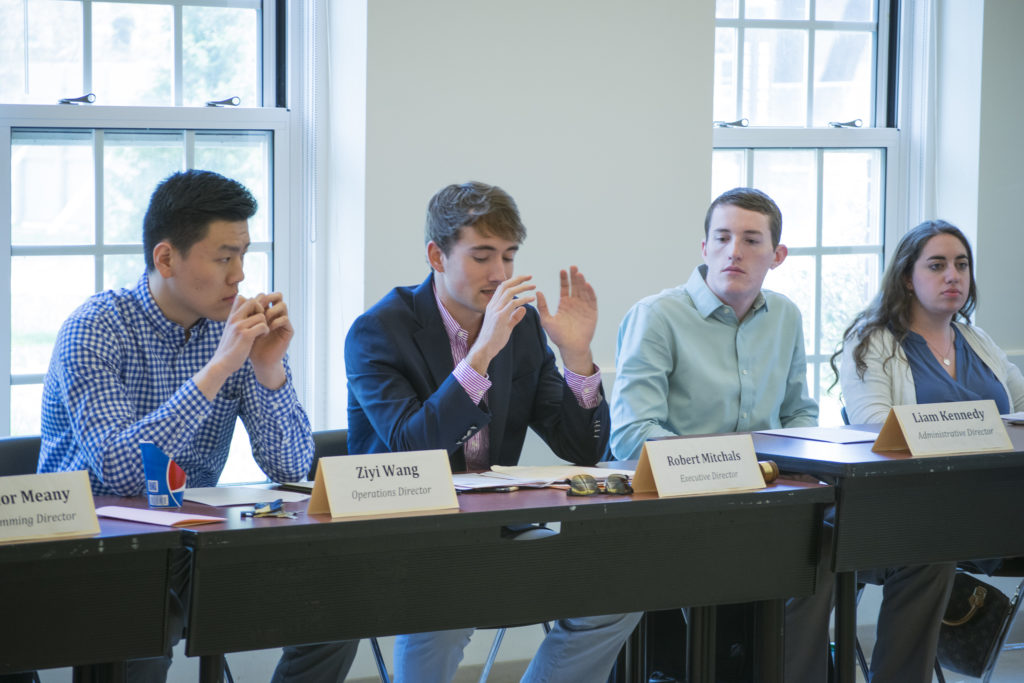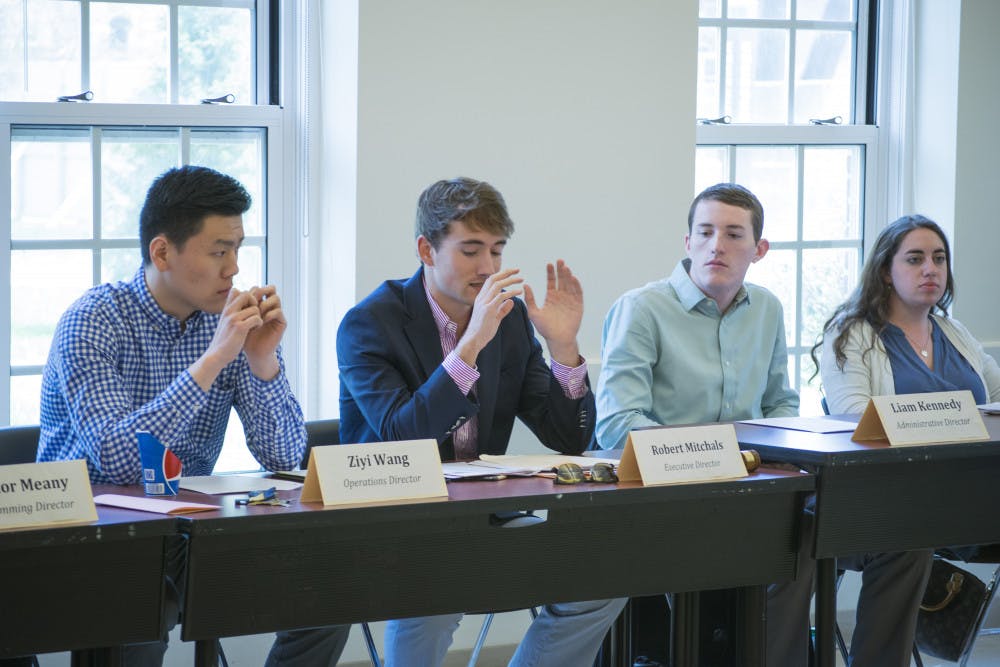By Olivia Rizzo
Staff Writer
At its latest meeting on Wednesday, April 19, the Student Finance Board discussed the circumstances of a recent external audit.
According to Student Finance Board Executive Director Robert Mitchals, Vice President for Student Affairs Amy Hecht invited an external firm to audit the Student Activity Fee.
According to Mitchals, the board was not properly notified that this external audit was going to occur, and the Office of Student Affairs did not seek input of students or the board.
“We welcome all audits,” Mitchals said. “In the past, we have audits conducted by the College, but we’ve never had one done by an external firm before.”
Hecht explained her reasoning behind having an external audit.

“In addition to an annual financial audit, SFB undergoes a periodic internal processes audit,” Hecht said via email. “The latter assesses whether SFB adheres to its policies and procedures. The external audit’s scope is different, in that it will look at SFB’s policies and procedures and whether they are in line with best practices.”
Executive board members of the SFB met with consultants from CohnReznick on March 18 to discuss the way the board allocates funds to student organizations.
During the meeting, board members became concerned with the line of questioning from the consultants, and they began to question the level of independence and objectivity of the audit.
“They flat out told us the way we run things is wrong,” said Alexandra Wallach, SFB’s financial director. “It felt like this audit was looking for something wrong. That they went in with a mindset that everything is wrong.”
Currently, when an organization requests funding for an event, they must break down their costs into budget lines. A description of what is being purchased and its approximate costs must be included in each budget line. All of the budget lines added together create the full budget for the event, according to Ziyi Wang, SFB’s operations director.
The consultants expressed that no other educational institutions go about allocating funds this way, according to the board. The consultants said the board should do away with the budget line system and simply vote on whether or not to fund an event’s full budget. The consultants advised that in the event an organization spends more than their allotted amount a reserve budget would cover the extra costs.
In the past, student organizations have expressed that they’ve felt that the current budget line system is restrictive. Similar sentiments have been expressed by members of staff in the Office of Student Affairs, according to Wang.
There was a reason why CohnReznick was chosen to conduct the audit, according to Hecht.
“CohnReznick had provided the College with a proposal to conduct a best practices review of TCNJ’s payroll operations and Treasurer Lloyd Ricketts was impressed with their methodology,” Hecht said. “He shared their name with (me) as a firm experienced in this kind of business process review.”
Concerns were also raised over the price of the audit, as the firm was paid $29,000 for its services, which was taken from the SAF reserves. In comparison, when the SAF is internally audited, it costs approximately $15,000, according to Mitchals.
“The purpose of the reserves should still align with the SAF, we don’t think the audit aligns with the goals of the SAF,” Mitchals said. “We just want students to know this is happening, and we want to encourage them to ask questions.”
During regular business, the board allocated $3,740.90 to MEDLIFE for its event, A Taste of South America.
“A Taste of South America is a multicultural event that will be addressing public health issues in South America, specifically in Peru and Ecuador,” said Adrian Diogo, MEDLIFE ‘s president.
“We will be providing traditional South American food with a specialization of Peruvian food, which will provide students with the opportunity to be subjected to the foods of a different culture,” Diogo added. “We want to raise awareness of public health issues in South America through audiovisual aids to demonstrate the realities of poverty that many people face in these regions.”
Funding will cover the costs of catering, plates, cups, utensils and streamers.
A Taste of South America will take place on May 4 in room 212 of the Education Building at 6:30 p.m.







